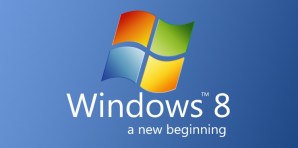 You may have read yesterday about some comments made by an Intel exec about how the four planned ARM versions of Windows 8 won’t support “legacy” apps, which is to say they won’t be backwards compatible with applications from earlier Windows operating systems. Microsoft has now responded with an official statement calling the Intel comments “factually inaccurate and unfortunately misleading,” no surprise given that the only actual confirmed fact about Windows 8 support for ARM processors is that it will exist.
You may have read yesterday about some comments made by an Intel exec about how the four planned ARM versions of Windows 8 won’t support “legacy” apps, which is to say they won’t be backwards compatible with applications from earlier Windows operating systems. Microsoft has now responded with an official statement calling the Intel comments “factually inaccurate and unfortunately misleading,” no surprise given that the only actual confirmed fact about Windows 8 support for ARM processors is that it will exist.
Microsoft’s comments on the matter: “Intel’s statements during yesterday’s Intel Investor Meeting about Microsoft’s plans for the next version of Windows were factually inaccurate and unfortunately misleading. From the first demonstrations of Windows on SoC, we have been clear about our goals and have emphasized that we are at the technology demonstration stage. As such, we have no further details or information at this time.”
Unfortunately, the response is vague enough that it’s hard to say exactly which points Microsoft is refuting. Intel essentially revealed that there are four versions of Windows 8 in development for ARM processors alone, and that these releases will only support applications developed from the ground up for ARM-based devices. Really though, as Microsoft says, Windows 8 is currently at the tech demo stage. Until official reveals are rolled out from the source, it’s probably best to disregard information like this, especially when it comes from a company that is in direct competition with ARM.
Just to be clear, the mobile device market is what an ARM version of Windows would cater to. So Intel’s comments aren’t entirely without merit. Reports have previously suggested that multiple versions of Windows 8 are in development, including some that are built for an ARM architecture. No one doubts that Microsoft will have different price points for Windows 8 with feature sets that cater to different markets and consumer/business buyers. That’s just how the company rolls.
Editors' Recommendations
- Windows 11 tips and tricks: 8 hidden settings you need to try
- How Intel and Microsoft are teaming up to take on Apple
- Intel and Microsoft just announced a huge collaboration
- How to remove a Microsoft account from Windows 11
- Microsoft plans to charge for Windows 10 updates in the future


